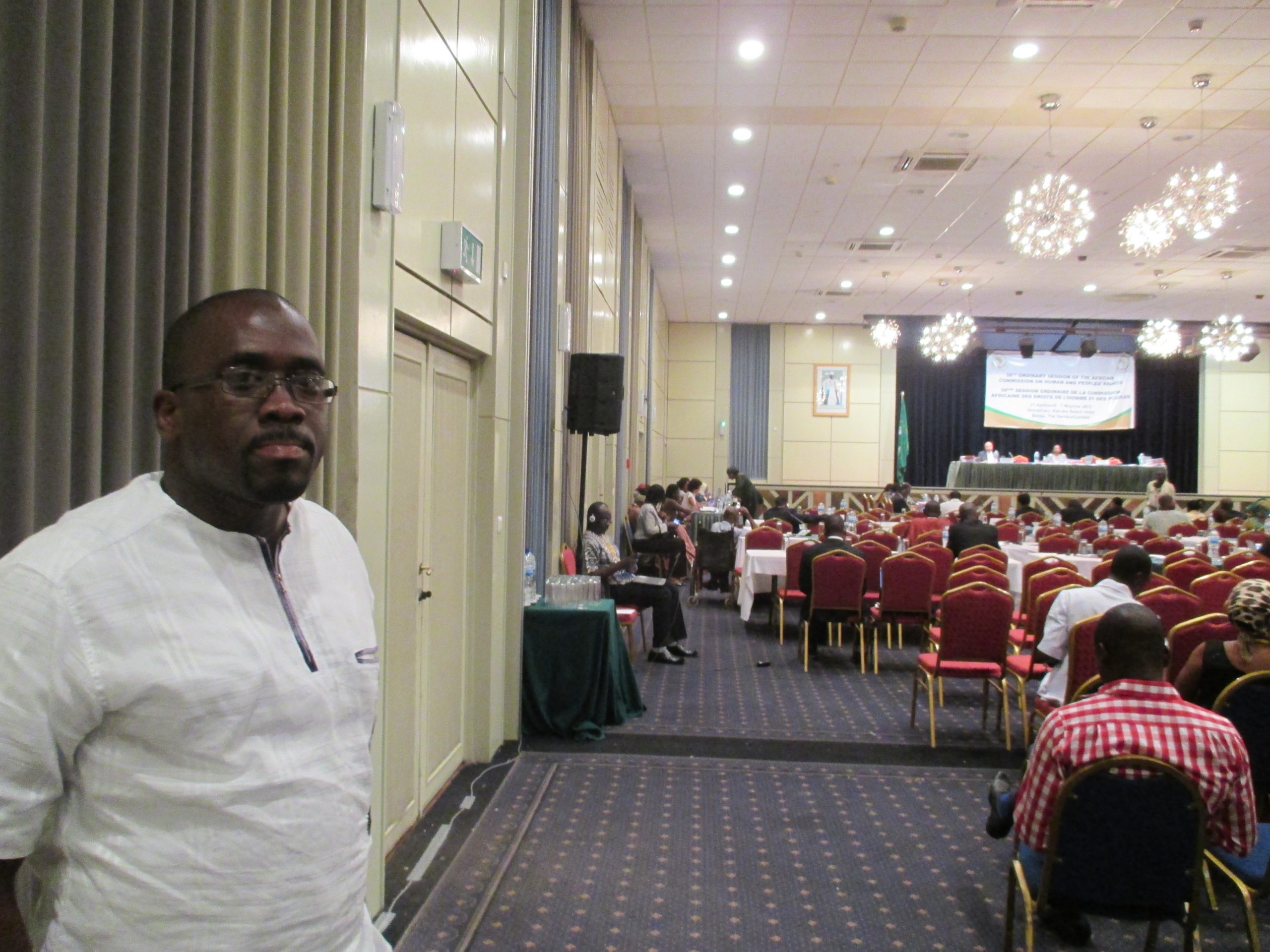
Human rights defender's story: Lassana Koné from the Democratic Republic of Congo
Lassana Koné is a lawyer in Kinshasa, Democratic Republic of Congo, working for Forest Peoples Programme, an international NGO working to protect the rights of those who live in the world’s forests.
Lassana Koné is a lawyer in Kinshasha, Democratic Republic of Congo (DRC), working for Forest Peoples Programme, an international NGO working to protect the rights of those who live in the world’s forests.
‘We want to support forest dependent communities in the protection of their natural resources and put human rights issues at the heart of forest debates’.
Lassana’s efforts in the DRC are focused currently on pushing for policy change regarding land reform and forest governance, seeking to secure community land titles.
‘It’s a key moment because the Government is in the process of reforming the land tenure act. It is vital that the human rights of communities be enshrined in this process. It gives us an opportunity to ensure that the free prior and informed manner in which communities ought to be consulted according to international law, is finally ensured by national law’.
Lassana works with a number of local communities in advocating for such policies and, in doing so, shines a light on the abuses taking place around communal land and natural resources. He explains that, for the communities raising their voice can be dangerous.
‘They face a range of opponents to their demands, and these opponents can become threatening. For example many communities are being evicted for conservation projects and can be threatened by national park guards. Others find themselves face to face with powerful proponents of extractive industries. In both cases, foreign companies are usually working together with the government’.
Whist the majority of the organisation’s work in DRC is currently focused on advocacy and dialogue for policy change, they also monitor human rights abuses in forest communities and are litigating a case before the national court regarding the forced eviction of a community to make way for a national park in Kivu region.
ISHR met with Lassana last week in Banjul, where he was working around the African Commission for Human and Peoples’ Rights (ACHPR).
‘We hope to bring a communication before the ACHPR regarding the Sengwer indigenous people of Kenya, who have suffered a massive forced eviction last year from their ancestral lands, when many thousands of families were evicted, with houses and possessions burned, by the Kenyan Government’s Forest Service. There have been some successful complaints with the World Bank and also statements by UN special procedures, but hope for a response at the regional level.’
But Lassana also sees other opportunities for actions from the ACHPR, particularly around the free prior and informed consultations of communities regarding the development and conservation projects.
‘This is something which the ACHPR Working Group on Extractives and the Environment is working on. We hope they will produce guidelines on this issue. But we are also engaging with the regional system in other ways: for this session we produced a shadow report on the situation facing indigenous Batwa people in Uganda, whilst we are also contemplating how to work with the Special Rapporteur on human rights defenders regarding the threats towards communities demanding their rights’.
‘We believe that local initiatives backed up by international support can ensure that forest peoples have their rights protected too’.
Lassana Koné can be contacted at [email protected]
